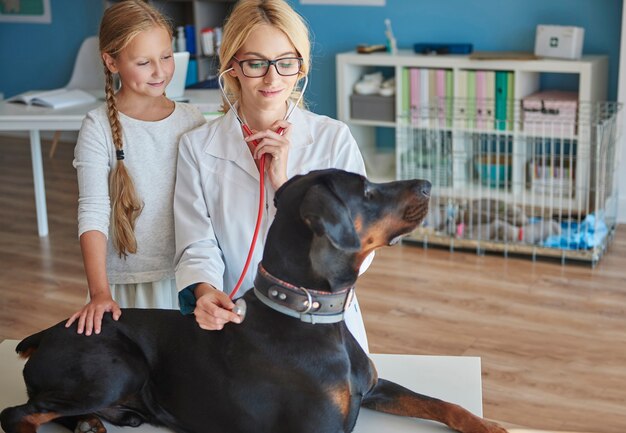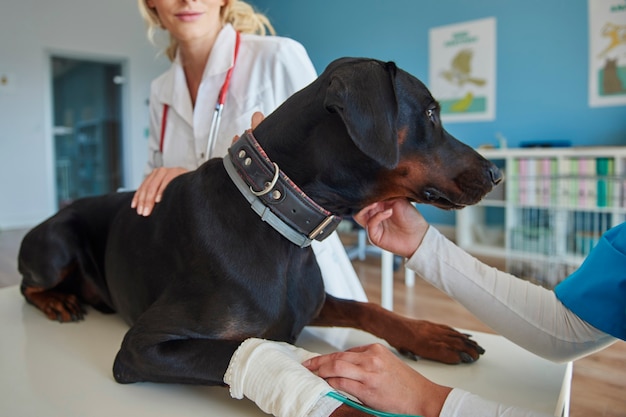Preventing Weakness: Mobility Assessments for Pets


Preventing Weakness: Mobility Assessments for Pets
When your beloved dog or cat starts to slow down, it can be difficult to know whether it’s just a part of aging or a sign of something more. Subtle changes in how your pet moves—such as hesitating before jumping on the couch, taking longer to get up in the morning, or occasionally slipping on the floor—are often the earliest clues that their mobility is starting to decline. At Alpha Animal Rehab & Fitness, located at 975 Bloomfield Ave, Suite 1, West Caldwell, NJ 07006, we specialize in identifying these early changes through comprehensive mobility assessments for pets. Our focus is on canine physical therapy and feline rehabilitation, with the goal of helping your companion remain active and independent for as long as possible.
Proactive mobility assessments in West Caldwell and surrounding communities are a cornerstone of preventive pet health. By catching subtle gait changes or early muscle weakness, we can implement targeted interventions that minimize long-term problems. In this blog, we’ll explore how mobility assessments for pets work, why they matter, and how our specialized team uses canine physical therapy, therapeutic exercise, and other advanced techniques to keep your pet moving comfortably. Whether you’re searching for a rehabilitation specialist or a mobility vet near me, our veterinary team is here to guide you every step of the way.
Recognizing Early Signs of Mobility Issues in Pets
Understanding the subtle changes in your pet’s movement is key to preventing weakness before it impacts their quality of life. Dogs and cats rarely show obvious signs of pain or discomfort; instead, they adapt by altering their behavior. Early symptoms of mobility problems include a reluctance to climb stairs, shorter or slower walks, changes in how your pet sits or lies down, and preferences for surfaces that are easier to grip. You might notice your dog lagging behind on walks, hesitating before jumping into the car, or your cat missing jumps onto furniture that once posed no challenge.
In some cases, pets develop muscle atrophy, which is a noticeable decrease in muscle mass, or you may see them limping or favoring one leg. Other indicators are subtle shifts in posture, dragging paws, or difficulty getting up after rest. Even changes in mood, such as increased irritability or withdrawal, can be linked to underlying discomfort and mobility loss. For pet owners in West Caldwell and the surrounding communities, watching for these early warning signs and seeking a mobility assessment is a vital step in supporting your companion’s long-term health.
Understanding Why Mobility Declines: Causes and Risk Factors
Mobility issues in pets can arise from a variety of causes, many of which progress gradually and may not be immediately obvious. Age is a major factor, as senior dogs and cats are more prone to arthritis, joint stiffness, and muscle weakness. Chronic conditions such as hip dysplasia, intervertebral disc disease, and cranial cruciate ligament injuries are common culprits that can silently erode your pet’s ability to move freely.
Weight gain is another significant risk, as excess pounds put additional strain on joints and muscles. Pets recovering from surgery or injury often experience reduced mobility due to pain or muscle disuse. Additionally, certain breeds are predisposed to orthopedic or neurologic problems, making regular mobility assessments for pets in West Caldwell particularly important for early intervention.
Environmental factors also play a role. Slippery floors, infrequent exercise, and inadequate enrichment can contribute to decreased strength and coordination. In regions like West Caldwell, where winter weather can make outdoor walks challenging, reduced activity during colder months can accelerate muscle loss and joint stiffness. Understanding these risk factors helps our veterinary team tailor a rehabilitation plan that addresses your pet’s unique needs.
How Canine Physical Therapy and Mobility Assessments Work Together
A professional mobility assessment at Alpha Animal Rehab & Fitness involves a detailed evaluation of your pet’s gait, joint range of motion, muscle tone, and overall functional abilities. During your visit, our rehabilitation veterinarians use a combination of observation, hands-on examination, and advanced tools to identify even subtle movement abnormalities. This thorough approach allows us to pinpoint areas of weakness, pain, or compensation before they lead to more significant mobility loss.
Based on the findings of your pet’s assessment, we develop a customized canine physical therapy plan (or feline rehabilitation program) that may include therapeutic exercise, manual therapy, and modalities such as laser therapy or underwater treadmill therapy. Therapeutic exercise focuses on rebuilding strength, improving balance, and restoring flexibility, while manual therapy involves hands-on techniques to reduce pain and enhance joint function. For pets needing additional support, mobility aids like carts, harnesses, and braces can be incorporated to maximize independence.
Canine physical therapy in West Caldwell is not just for pets recovering from injury or surgery; it is equally valuable as a preventive tool for healthy but aging animals or those at higher risk due to breed or lifestyle. By integrating regular mobility assessments into your pet’s wellness routine, our team can make timely adjustments to their therapy plan, ensuring ongoing comfort and mobility.
Keeping Your Pet Moving: At-Home Strategies and Prevention
While professional rehabilitation is crucial, pet owners play a major role in maintaining their companion’s mobility between visits. Daily routines that encourage gentle movement and engagement are essential. For dogs, this means consistent walks tailored to their ability, interactive play sessions, and structured exercises recommended by your veterinary rehabilitation team. For cats, environmental enrichment such as climbing towers, scratching posts, and puzzle feeders can stimulate activity and keep joints limber.
Maintaining a healthy weight is another cornerstone of mobility preservation. Our veterinary team provides weight management guidance to help you choose the right diet, portion sizes, and exercise plan for your pet’s specific needs. Regular nail trims, non-slip mats on slippery floors, and ramps for furniture can further support mobility, especially for senior pets.
If your pet has already been diagnosed with arthritis or a chronic condition, following your rehabilitation veterinarian’s recommendations for manual therapy, at-home exercises, and joint supplements is vital. Consistency is key, as small daily efforts add up to significant improvements in strength and comfort over time. By adopting these preventive habits, you can help delay or even prevent the onset of weakness, ensuring your pet enjoys an active lifestyle for years to come.
Knowing When to Seek Professional Rehabilitation Care
While some changes in mobility are expected as pets age, sudden or progressive weakness, lameness, or loss of balance always warrant prompt attention from a rehabilitation specialist. If your dog or cat begins to fall, drags their limbs, vocalizes when moving, or refuses to stand, these are urgent signs that should not be ignored. Likewise, if you notice persistent changes in how your pet walks, sits, or uses stairs, it’s time to schedule a mobility assessment in West Caldwell.
Our team at Alpha Animal Rehab & Fitness is uniquely equipped to evaluate and manage complex mobility issues. We collaborate with your primary care veterinarian to provide advanced physical therapy, fitness services, and mobility aids tailored to your pet’s individual needs. Whether your pet is recovering from surgery, living with chronic pain, or simply showing signs of slowing down, seeking timely intervention can prevent further decline and restore quality of life.
If you are searching for a rehabilitation vet near me who understands the complexities of pet mobility, our experienced veterinary professionals in West Caldwell and the surrounding communities are ready to help. We encourage you to reach out at the first sign of mobility changes, as early action is the most effective way to preserve your pet’s independence.
Take the First Step Toward Lifelong Mobility Today
Mobility assessments for pets are a proactive investment in your companion’s long-term well-being. At Alpha Animal Rehab & Fitness, we are dedicated to providing advanced canine physical therapy in West Caldwell, with a focus on early intervention, customized rehabilitation, and compassionate support for every family. If you’re noticing subtle changes in your pet’s movement or want to learn more about preventive strategies, our veterinary team is here to guide you.
We invite you to contact us at (908) 454-2273 or visit our West Caldwell location to schedule a comprehensive mobility assessment for your pet. Explore our fitness services and discover how ongoing canine physical therapy in West Caldwell can keep your dog or cat active for years to come. For those searching for a specialist vet near me, know that our veterinary professionals are committed to delivering the highest standard of rehabilitation care throughout West Caldwell and surrounding areas.
Your pet’s active, happy future starts with a single step—let us help you take it together. For further reading on rehabilitation and mobility, visit the American Association of Rehabilitation Veterinarians at www.rehabvets.org or contact our veterinary team for personalized guidance.
This blog is intended for informational purposes only and does not replace professional veterinary advice. Always consult your veterinarian or a veterinary specialist for concerns about your pet’s health or mobility.




